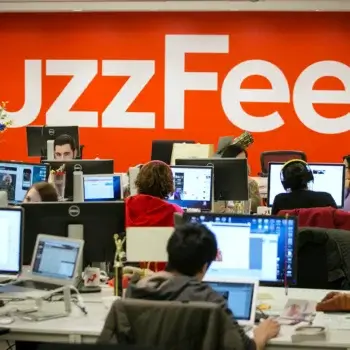Today, there is a pervasive and nearly deafening mantra insisting that you quit your job and become an entrepreneur. The collective says you should do it today because every day you wait brings you closer to a life of poverty and regret.
A central theme in the entrepreneurial world is challenging the status quo and questioning conventional wisdom in search of new and better ways of doing things. If you’re just going to follow the pack, you may as well just get a real job and call it a day.
Entrepreneurship can be incredibly rewarding. Starting your own business may be the best decision you ever make. But it’s not for everyone. There’s a lot to consider before you take the plunge and a lot of myths to expose, starting with these.
Let’s take a glance at some of the Myths of entrepreneurship:
1. You’ll be Happier
Entrepreneurship can be incredibly rewarding. Starting your own business may be the best decision you ever make. But it’s not for everyone. There’s a lot to consider before you take the plunge and a lot of myths to expose, starting with these.
2. You’ll have more freedom, control and work-life balance
If you’re on your own, chances are you’re going to find yourself wearing all sorts of hats and working 24×7 for a very long time. Work will become your life. There’s nothing wrong with that, but not everyone feels more freedom and control that way.
3.You’ll be more fulfilled
Do we know what just about everyone loves to do? Great work that accomplishes goals they can be proud of. One can do that working for a big company, a small company, or their own company. Fulfillment has nothing to do with business ownership. If one wants to manage, lead, or run a business, it’s better off learning the ropes in a good company before starting your own.
4.There are no jobs; technology and outsourcing killed them all
It is shockingly untrue. If technology destroyed jobs, then which one will you call the most lucrative and fastest-growing industry on the face of the earth.That’s right: technology. If you can’t find a job, chances are you lack in-demand skills or education, in which case, yes, you might want to consider starting a small business which does not require much of exclusive skill sets in particular.
5.Entrepreneurs Live a Glamorous Lifestyle
That’s again untrue. Most entrepreneurs do not live a glamorous lifestyle; if they do, their investors should cringe. Entrepreneurs are notoriously frugal, hard working and opportunity-obsessed with little time for outside activities. These qualities are not hallmarks of the glamorous life.
Now,Let’s look at some of the facts of entrepreneurship.
- Most successful entrepreneurs succeed by exceptional execution of ordinary ideas: See Jiffy Lube, Starbucks and Charles Schwab.
- Most successful entrepreneurs concentrate on minimizing risk rather than taking huge risk at the time of starting their companies.
- Successful entrepreneurs use their innovative passion in many ways, such as buying companies, creating new ventures within larger companies and re-strategising nonprofits.
- More than 80 percent of new ventures are boot-strapped from personal savings, credit cards, second mortgages and the like. The median start-up capital is about $10,000. Waste Management began with a single truck; Sam Walton started with $5,000. So, in short access capital is not required to startup.
- Being first to execute well and delight customers is not at all important for success. A lot of startups have entered quite late in a particular startup industry and have done well.
_______________________________________________________________________
About the Author
This article was written by Utkarsh Sharma.





























